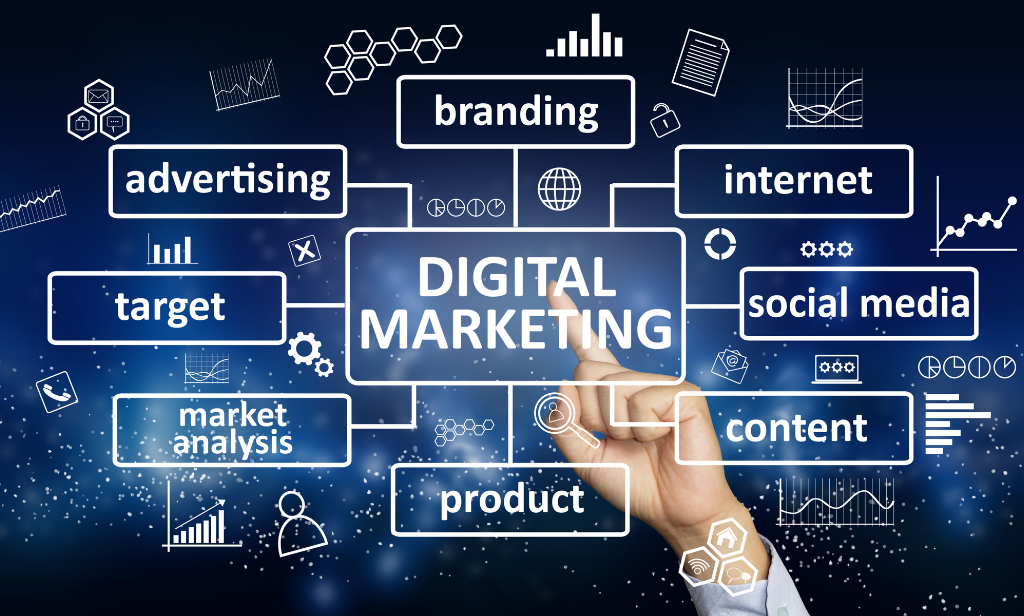The Complete Guide to AI Business Solutions for Modern Enterprises
Artificial Intelligence (AI) has moved a long way past buzzword repute. It now drives actual fee across industries, reshaping how organizations perform, compete, and develop. Modern organisations are the usage of AI commercial enterprise answers to enhance productiveness, streamline operations, and free up new opportunities that have been as soon as impossible to manage manually.
This manual explores what AI commercial enterprise answers are, how they paintings, in which they deliver fee, and the way organisations can successfully adopt them.
What Are AI Business Solutions?
Ai business solutions answers talk over with equipment, structures, and programs that use synthetic intelligence technologies—which include machine getting to know, natural language processing, and predictive analytics—to clear up business demanding situations.
They’re designed to automate repetitive duties, supply insights from data, enhance purchaser studies, and help selection-making at every degree of the agency.
Unlike conventional software program, AI-pushed structures study from records styles, improve with experience, and adapt to changing environments. This makes them best for corporations searching for agility and performance in a fast-transferring digital landscape.
Core Components of AI Business Solutions
Modern AI business solutions usually combine several core technologies that work together:
- Machine Learning (ML):
Enables systems to study from facts with out being explicitly programmed. Enterprises use ML for forecasting, fraud detection, and fashion evaluation. - Natural Language Processing (NLP):
Powers chatbots, voice assistants, and sentiment analysis tools that interpret and respond to human language in real time. - Computer Vision:
Helps businesses analyze visual data such as images, videos, and scans—useful in manufacturing quality checks, healthcare diagnostics, and security monitoring. - Robotic Process Automation (RPA):
Automates structured, rule-based tasks—such as data entry or invoice processing—freeing employees to focus on strategic work. - Predictive Analytics:
Transforms historical data into future insights, helping businesses anticipate customer needs, market shifts, and operational bottlenecks.
Together, these components create a foundation for AI systems that continuously improve enterprise performance.
Why Enterprises Are Investing in AI Business Solutions
Every enterprise faces pressure to increase efficiency while cutting costs. AI provides both.
Here are the main reasons companies invest in AI business solutions:
1. Enhanced Efficiency
AI handles high-volume, repetitive tasks faster than humans—without fatigue or error. From supply chain optimization to HR management, automation reduces delays and boosts accuracy.
2. Data-Driven Decisions
AI analytics systems process vast datasets to extract actionable insights, supporting smarter business decisions and reducing reliance on intuition or guesswork.
3. Personalized Customer Experiences
AI enables hyper-personalization in marketing, sales, and support. Chatbots, recommendation engines, and predictive targeting create experiences tailored to each customer’s preferences.
4. Cost Reduction
Automated workflows minimize labor costs and reduce operational inefficiencies. Predictive maintenance, for example, prevents costly equipment downtime.
5. Competitive Advantage
Companies leveraging AI stay ahead by responding faster to market changes, innovating products, and predicting customer trends before competitors do.
Real-World Applications of AI Business Solutions
AI is now integrated across nearly every business function. Here’s how different departments benefit:
1. Marketing and Sales
AI tools examine purchaser conduct, expect shopping for patterns, and customize verbal exchange. Automated e-mail campaigns, advice engines, and dynamic pricing strategies boom conversions at the same time as lowering guide workload.
2. Customer Service
AI chatbots and virtual assistants handle inquiries 24/7. Sentiment evaluation equipment gauge consumer emotions from messages and social media, allowing guide groups to respond faster and more efficiently.
3. Human Resources
AI simplifies recruitment with the aid of screening resumes, ranking applicants, or even predicting activity achievement based on historical facts. AI also supports employee engagement and retention strategies through predictive insights.
4. Finance and Accounting
Automated financial analytics, fraud detection, and shrewd forecasting lessen guide effort and reduce risk. AI can analyze spending styles and come across anomalies inside seconds.
5. Supply Chain and Operations
AI optimizes logistics by using predicting call for, adjusting stock, and routing shipments efficiently. Predictive maintenance minimizes downtime and reduces operational charges.
6. Product Development
Enterprises use AI-pushed analytics to research consumer feedback, forecast market tendencies, and design products that align with customer demands. AI additionally speeds up R&D thru speedy records modeling.
Implementing AI Business Solutions in Your Enterprise
Adopting AI isn’t about buying a tool—it’s about transforming how the organization operates. Here’s a practical roadmap:
1. Identify Clear Business Goals
Before adopting AI, define measurable goals—such as reducing customer response time, cutting operational costs, or improving product quality. Goals guide technology selection and ROI evaluation.
2. Assess Data Readiness
AI prospers on records. Ensure information is smooth, well-prepared, and accessible. Enterprises regularly spend money on facts governance and cloud infrastructure earlier than launching AI initiatives.
3. Choose the Right AI Tools or Partners
Select platforms or companions that align together with your objectives and integrate without problems with present structures. Many organisations use hybrid solutions that integrate proprietary and third-birthday party AI tools.
4. Start Small and Scale Gradually
Pilot projects allow teams to test AI solutions, measure results, and refine strategies before full-scale deployment. Success at small scale builds confidence and stakeholder buy-in.
5. Train and Upskill Teams
AI adoption works best when employees understand its role and impact. Continuous learning programs help teams adapt and collaborate effectively with AI systems.
6. Measure Performance and Optimize
Track results against KPIs like cost savings, time reduction, or revenue growth. Continuous monitoring ensures AI solutions evolve alongside business needs.
Overcoming Common Challenges
While AI business solutions deliver measurable benefits, enterprises must address key challenges for long-term success:
- Data Privacy and Security:
Protecting sensitive information is crucial. Compliance with data protection laws (like GDPR) should be built into every AI system. - Integration Complexity:
Legacy structures may not without problems hook up with new AI systems. Strategic planning and modular integration minimize disruption. - Cultural Resistance:
Employees may fear job loss or distrust AI decisions. Transparent communique and involvement in AI projects help reduce resistance. - Cost and ROI Concerns:
AI implementation requires prematurely funding. However, long-time period financial savings, performance profits, and sales boom frequently justify the cost.
Future Trends in AI Business Solutions
The future of AI business solutions promises even greater transformation. Several trends are reshaping how enterprises apply AI:
1. Generative AI
Beyond automation, generative AI gear now create textual content, pictures, designs, and code—lowering innovative bottlenecks and accelerating innovation.
2. AI-Driven Decision Intelligence
AI will an increasing number of manual executives with superior simulations and state of affairs modeling, turning complex statistics into strategic foresight.
3. Hyperautomation
The combination of AI, RPA, and low-code platforms will automate end-to-end processes, from customer onboarding to logistics management.
4. Ethical and Responsible AI
As AI becomes extra embedded in business operations, transparency, equity, and responsibility turns into general necessities.
5. Industry-Specific AI Platforms
Enterprises will adopt tailor-made AI structures constructed for sectors together with healthcare, finance, production, and retail—every optimized for unique workflows and compliance requirements.
Choosing the Right AI Business Solution Provider
Selecting a reliable associate ensures a success adoption and scalability. When evaluating vendors or experts, don’t forget:
* Experience in your industry
* Ability to integrate with present systems
* Transparent pricing models
* Strong records security features
* Proven case studies and measurable outcomes
Enterprises have to prioritize companies imparting flexible solutions that evolve with their commercial enterprise wishes.
The Strategic Impact of AI on Business Growth
AI doesn’t just streamline operations—it redefines enterprise strategy. Companies that deploy AI enterprise answers efficiently gain:
* Smarter aid allocation thru real-time insights
* Faster innovation cycles supported by using predictive analysis
* Higher purchaser pride through customized interactions
* Data-pushed agility that enables rapid marketplace adaptation
AI’s impact extends past efficiency—it fuels non-stop boom and aggressive benefit.
Conclusion
AI business solutions are now not non-obligatory—they’re important for cutting-edge companies aiming to thrive in a virtual-first economy. From automating operations to enhancing decision-making, AI gives tools that transform complexity into possibility.
By beginning with clean dreams, investing in first-class statistics, and building a tradition that embraces innovation, enterprises can harness the overall potential of AI to pressure measurable enterprise results.
In an era wherein intelligence defines fulfillment, adopting AI business answers is not just a technology improve—it’s a strategic evolution.













